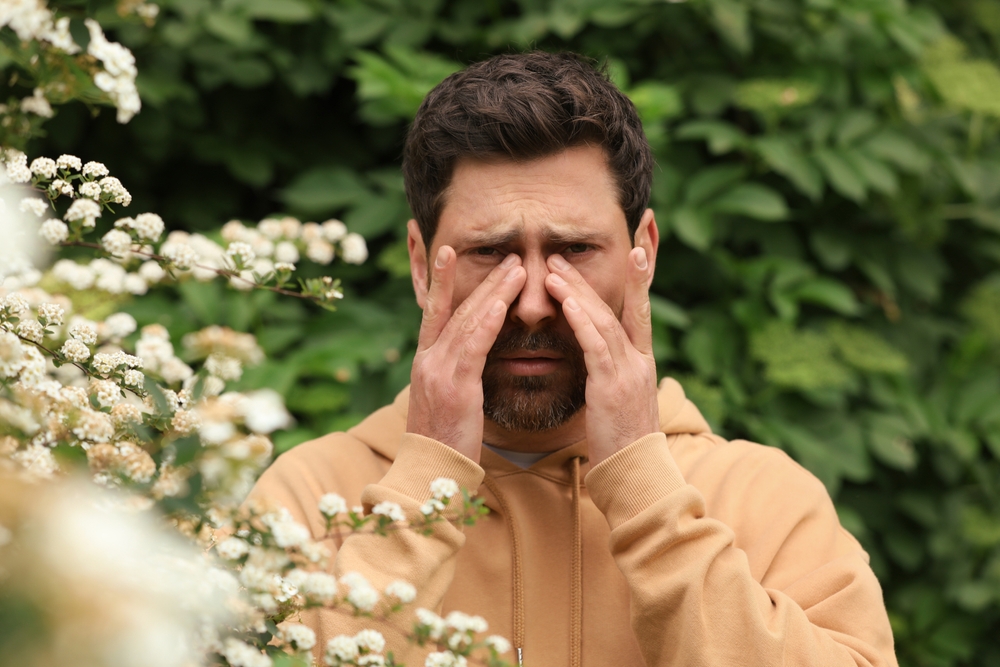
Allergies and dry eye are two prevalent conditions that affect millions globally. Allergies, in general, are your body's response to substances it considers harmful, leading to a range of symptoms, including itching, swelling, and redness. On the other hand, dry eye is a condition characterized by a lack of adequate tears to nourish and lubricate the eye. Understanding these conditions individually and in relation to each other can be crucial for effective management and treatment.
Understanding the Link Between Allergies and Dry Eye
The link between allergies and dry eye is more profound than one might initially think. Allergies, particularly ocular allergies, can cause dry eye symptoms. When your body encounters an allergen, it releases histamines, which can lead to inflammation in various parts of the body, including the eyes. This inflammation can disrupt the tear film, the thin layer of fluid that protects and lubricates the eye. When the tear film is compromised, it can result in dry eyes.
How Allergies Can Aggravate Dry Eye Symptoms
Allergies can significantly worsen the symptoms of dry eye. When an allergic reaction occurs, the body releases a cascade of chemicals, including histamines, to combat the allergens. These chemicals can cause inflammation and irritation in the eyes, leading to symptoms like redness, itching, and burning.
Additionally, the inflammation caused by allergies can disrupt the production and quality of tears, which are necessary for maintaining eye health and comfort. Poor tear quality or quantity can lead to dry eye, a condition characterized by chronic discomfort and potential vision issues if left untreated.
Common Triggers for Allergies and Dry Eye
Identifying and avoiding common triggers can be a crucial step in managing allergies and dry eyes. Allergens that often cause eye-related symptoms include dust mites, pet dander, mold, and pollen. These allergens can cause an immune response, leading to eye inflammation and irritation, thereby triggering or worsening dry eye symptoms.
Environmental factors can also contribute to dry eyes. These include dry or windy conditions, high altitudes, and prolonged screen time. These factors can cause the rapid evaporation of tears, leading to dryness and discomfort. By being aware of these triggers, one can take preventive measures to minimize their impact.
How to Manage Allergies and Dry Eye
Managing allergies and dry eyes involves a multifaceted approach. First, it's important to avoid known allergens and environmental triggers as much as possible. This may include using dust-proof covers on bedding, grooming pets regularly to reduce dander, or using a humidifier to maintain optimal humidity levels.
Over-the-counter remedies, such as antihistamines and artificial tears, can also provide relief from symptoms. Antihistamines can help control the body's reaction to allergens, while artificial tears can supplement natural tears to alleviate dryness. However, these should be used under the guidance of a healthcare professional to ensure safe and effective use.
Lifestyle Changes to Alleviate Allergies and Dry Eyes
In addition to avoiding triggers and using medication, certain lifestyle changes can also help manage allergies and dry eyes. These include staying hydrated, maintaining a healthy diet, and taking regular screen breaks. Hydration can support tear production, while a diet rich in omega-3 fatty acids can promote eye health. Regular screen breaks can prevent the eye strain and dryness associated with prolonged screen use.
Practicing good eye hygiene, such as washing your hands before touching your eyes and cleaning your contact lenses properly, can also help prevent irritation and infection. These lifestyle changes, along with medical treatment, can go a long way in managing allergies and dry eye.
When to See an Optometrist for Allergies and Dry Eye
While minor cases of allergies and dry eyes can often be managed at home, it's important to seek professional help if symptoms persist or worsen. An optometrist can provide a comprehensive eye exam to diagnose the condition accurately and recommend the best treatment options.
If you experience symptoms such as persistent redness, itching, burning, or blurry vision, or if over-the-counter remedies do not provide relief, it's time to see an optometrist. Early intervention can prevent complications and ensure optimal eye health.
Conclusion
Allergies and dry eye are interconnected conditions that can significantly impact one's quality of life. By understanding the link between them, identifying common triggers, and incorporating management strategies, it's possible to mitigate their impact.
To learn more about how to manage allergies and dry eye, consult with our professionals at Spectacles in our Jackson, Mississippi, office. Call 601.398.4662 to schedule an appointment today.







